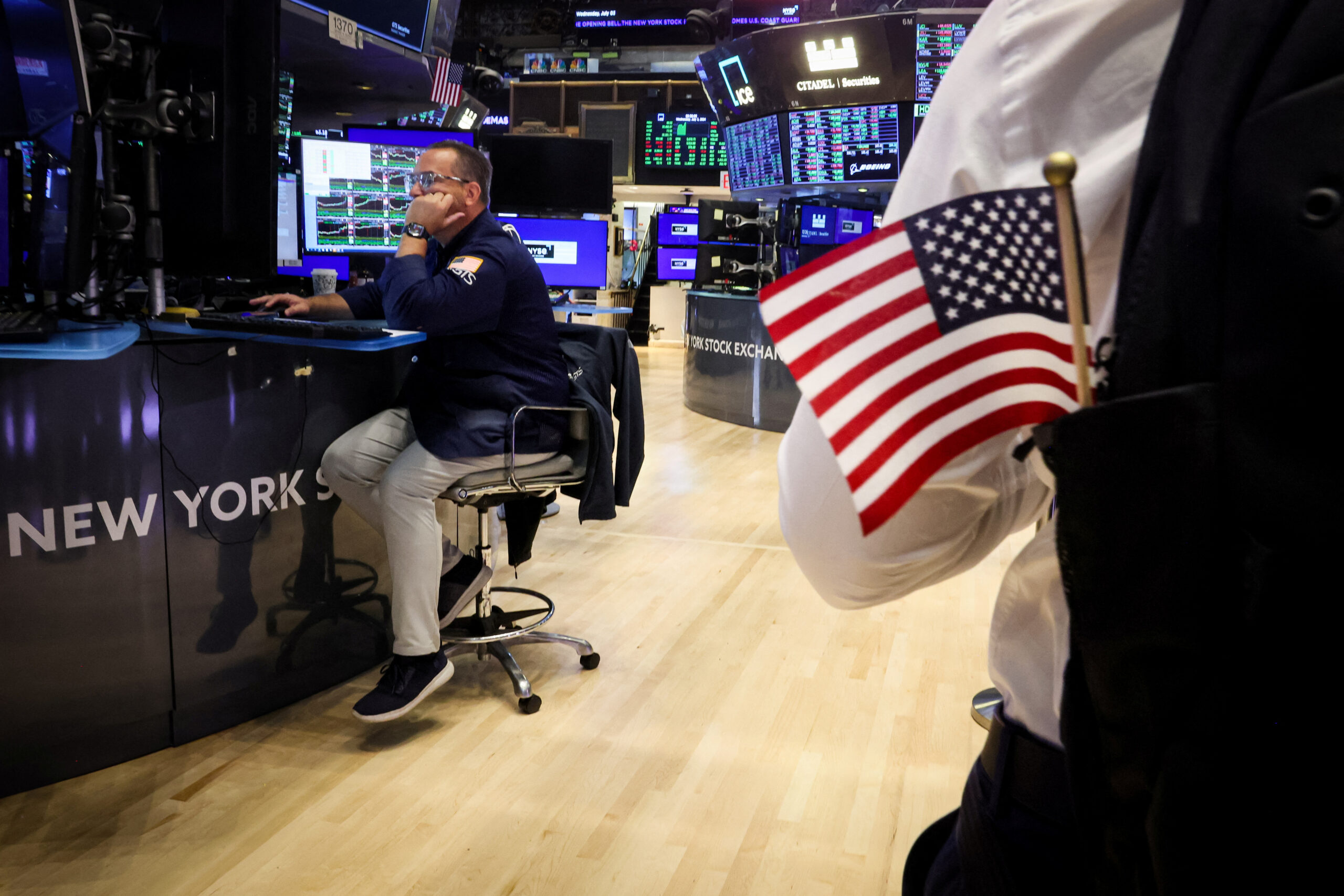NEW YORK – US companies releasing quarterly results in the coming weeks face investors who expect no less than stellar growth, with estimates particularly high for Wall Street technology heavyweights such as Nvidia (NASDAQ: NVDA) and Microsoft (NASDAQ: MSFT).
Stocks have rallied in recent weeks, partly on the view that tech-related megacaps and other U.S. companies can deliver earnings strong enough to support valuations.
The S&P 500 and Nasdaq fell from record highs on Thursday, however, with investors selling megacap names, including Nvidia, and favoring real estate, utilities, and small-cap companies after a softer-than-expected U.S. inflation reading.
Second-quarter earnings for S&P 500 companies are expected to have jumped 10.1% year-over-year, based on LSEG data as of Friday, accelerating from 8.2% growth in the first quarter. That aggregate second-quarter forecast is down just slightly from a 10.4% forecast at the start of April. S&P 500 earnings growth has been improving since a year-over-year decline in the second quarter of 2023, largely because of growth in tech-focused companies and optimism over artificial intelligence.
Among the upbeat outlooks, AI chipmaker Nvidia in May forecast quarterly revenue above estimates, while Microsoft in April forecast intelligent cloud revenue mostly ahead of Wall Street targets.
“We’re walking into an optimistic earnings season,” said Peter Tuz, president of Chase Investment Counsel in Charlottesville, Virginia, pointing to earnings estimate increases from some of the AI-driven companies.
Companies frequently give conservative quarterly forecasts in a bid to soften investor expectations. S&P 500 companies have been slightly less pessimistic this time around, with negative outlooks outpacing positive ones by 2 to 1 compared with 3 to 1 for the first quarter and the 2.5 to 1 long-term average, LSEG data shows.
To some strategists, the only slight decline in forecasts since April 1 could bode well for this earnings season since the majority of companies will still likely beat analysts’ forecasts. On average, nearly 80% of S&P 500 companies have beaten analyst earnings expectations in the past four reporting periods, per LSEG data.
It could also mean less impressive beats by companies this season given the higher bar, according to Goldman Sachs strategists and others.
BofA Securities strategists have said S&P 500 estimates typically fall 4% in the three months before a reporting season, based on the average since 2000.
With second-quarter estimates holding up, they expect a “2% beat,” which they said would be the smallest since the fourth quarter of 2022.
Estimates for the S&P 500 communication services, consumer discretionary, and technology sectors have increased since April 1. Reports from heavily weighted megacaps are expected to be critical to the earnings season.
The S&P 500 technology sector index is up 32% so far in 2024, leading gains among sectors, followed by communication services, which is up 27%. The S&P 500 is up 17% since Dec. 31.
The S&P 500 index is trading at 21.2 times its estimated earnings for the next 12 months, well above the index’s historic average of 15.7, according to LSEG Datastream.
To be sure, some investors are watching this earnings season to see whether profit growth from companies outside of the mega-cap names may be starting to catch up to the tech-related leaders.
“The sectors that have been given up for dead, like energy and financials, will start to have much better year-over-year comparisons, and we think it’s a reasonable bet that we will see a broadening out of this rally,” said Phil Orlando, chief equity market strategist at Federated Hermes.
One other key focus of this earnings period could be whether consumer demand is holding up.
Also supporting stocks have been investor expectations that the economy has cooled enough to allow the U.S. Federal Reserve to start cutting interest rates this year.
Second-quarter estimates may have held up partly because of consumer demand, said Oliver Pursche, senior vice president, advisor for Wealthspire Advisors in Westport, Connecticut.
“A lot of investors and analysts had expected a deeper slowdown in consumer spending, and that has not materialized,” Pursche said.
(Source: ReutersReuters)













